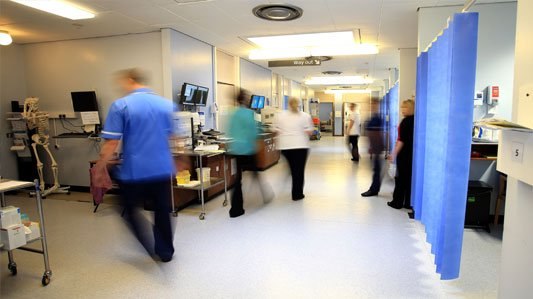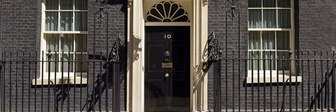Headlines about some new crisis or other in the public services come almost daily. Not all of them are caused by insufficient funding, but many are. As the Chancellor prepares his Budget, is it time to put up taxes to relieve the pressure?
It’s one of the immutable facts of democratic politics that, when we are asked by pollsters, we tend to say we want more money spent on the public services and we also want our taxes to be cut.
A difficult demand to meet. So obliging politicians tend to solve the dilemma by spending the money and then borrowing more to pay the bill. But there are limits to how much this can be done and how often. Sooner or later a choice has to be made: are we prepared to put up with increased taxes to pay for more public spending or will we sacrifice some services in order that our taxes should be kept down?
Over nearly a decade now governments have been taking the axe to public spending, largely in order to tackle borrowing levels that simply got out of hand. It wasn’t so much that there had been a splurge in public spending – more that the financial crisis of 2007/8 led to a recession that saw a collapse in tax revenues and a consequent ballooning in the levels of government borrowing simply in order to pay for existing spending commitments.
The coalition government and its successor Conservative government have hacked at public spending with the result that government borrowing has fallen sharply, from a peak of around 10% of national income back in 2010 to somewhere nearer 4% now. But all deficits add to the overall stock of government debt, so it has gone on rising. It now stands at over 90% of national income. This is less than the stratospheric levels of some of our European neighbours but still high for Britain in peacetime.
The government wants to eliminate the annual deficit altogether so that total debt levels can start to fall too. But it has adopted an Augustinian approach to this task: Oh Lord, make me chaste… but not yet. The date has been repeatedly postponed for returning to the black, and now the target date is meant to be early in the next parliament.
To achieve this, the government is pressing on with more cuts to public spending. Only this week the Chief Secretary to the Treasury, David Gauke, wrote to government departments asking them to start preparing cuts in their budgets of up to 6% for the last year of this parliament, 2019/20.
But increasingly the cry is being heard: ‘enough is enough’. And the resistance is coming not just from the usual sources - those who work in the public services involved and those who benefit from the services – but from independent observers of the scene as well. On Wednesday the Financial Times ran a leader headlined: ‘Britain’s chancellor faces the limits of austerity’.
It’s not hard to see why. Social care is now universally recognised to be in crisis. Substantial cuts in central government funding over the last six years have led local authorities to be around £2bn short in budgets intended to finance their legal obligations to provide care for the elderly. Care homes are closing. The knock-on effect on hospitals has been to block beds because patients who have been treated have nowhere to go to. The NHS itself has mounting deficits even though its budgets have been ‘protected’ from the cuts: waiting times for cancer treatment are rising and A&E departments are at breaking point. Schools now face cuts too, despite also having been protected. Tens of thousands of people on disability benefits are to have them reduced or cut. Violence and suicides in prisons are on the increase. The list goes on.
This week it was the police who came into the spotlight. A report by HM Chief Inspector of Constabulary spoke of a ‘national crisis’ in policing. Zoe Billingham, one of the inspectors, said: ‘I’m raising a red flag to warn forces of what is, to all intents and purposes, an unconscious form of rationing of police services. Investigations are being cut short prematurely, suspects are not being tracked down [and] neighbourhood policing is, in some places, in name only.’ The government responded by saying that crime was falling despite the cuts and that the problems in some forces were little to do with the cuts, since other forces demonstrated they could avoid them despite not having more money. But Chief Constable Michael Barton, of the National Police Chiefs’ Council, said: ‘Over the last five years, police budgets were reduced by 22 per cent and we lost 32,334 officers and staff …It’s a simple reality that we are required to prioritise more.’
The independent Institute for Government published a report this week saying that public services were approaching a breaking point. It acknowledged that in many areas the government had been successful in cutting spending without undue adverse effect on services. But it added: ‘Without action, within the next two years [the government] could face a disastrous combination of failing public services and breached spending controls. The government risks being bounced from crisis to crisis, unable to get a grip on the situation.’
As he prepares his Budget, Philip Hammond, the Chancellor, knows that he needs to find more money. He is unlikely to take too much comfort in the news that the Office for Budget Responsibility now thinks tax receipts will be higher this year than thought last November and that he may even have a windfall of £45bn to play with over the next five years. He knows that such is the accuracy of forecasts that manna from heaven like this can disappear as quickly as it emerges. In any case he wants to use any windfalls to reduce the deficit.
No doubt the Treasury is digging around in the back of every sofa to find more revenue. There is speculation, for example, that the Chancellor will curb the tax allowances on pension contributions paid by the better off. There is even talk of the government reviving the ‘Death tax’, a measure to pay for social care the Tory Party roundly condemned when it was proposed by Gordon Brown. But that does not look to be imminent.
What is clear is that tinkering with tax will no longer fit the bill. Something more radical is needed. Some will say the answer is obvious: tax the rich! John McDonnell, the shadow chancellor, has suggested that those earning more than a million pounds a year should have to publish their tax returns. But even if that led to some increase in revenue, the simple fact is that there are not enough rich people to ‘soak’ to raise the money needed. And anyway their defenders would say the top 10% of earners are already contributing a huge proportion of income tax revenue).
The Tory government faces its own self-imposed constraints: the promise it made to voters at the last election not to increase income tax, national insurance contributions or the rate of VAT. So, one obvious question is: ‘Given the crisis in public spending, should it be prepared to break its promises?’
The basic rate of income tax, at 20%, is very low by historical standards: it was well up in the thirties for most of the post-war era. In the light of the large number of people who pay it, an increase in the rate would generate considerable revenue. But there are arguments against. First, chancellors who have cut the rate have often at the same time bunged up national insurance contributions, a sort of stealth income tax. So the effective rate of income tax is higher than it might appear. Secondly, increasing income taxes cuts disposable income and at a time when economic growth is so dependent (unhealthily so, many economists believe) on consumer spending, the effect might well be to lower growth by reducing demand.
The signs are that the government is going to adopt the same Augustinian approach to tax increases as it has to achieving budget surplus. That’s to say, it won’t renew old promises at the next election, making the calculation that it can win again without committing itself to keeping tax down. There are already signs of it wanting to ditch old commitments, like the triple lock on pensions. Perhaps the same will be done with pledges on income tax and VAT rates.
It may have no option. It’s estimated that in the 2020s the ageing population will force the share of government spending in national income to rise by one percentage point. That means that there will need to be an extra £18bn a year of tax rises, or three percentage points on the rate of income tax, just to pay for the elderly.
The question is: should the government get on with such tax rises now in order to stave off the crisis which seems to be engulfing our public services. Or hope that, in the words of Mr. Micawber, something will turn up?
What’s your view? Let us know.
Image PA






